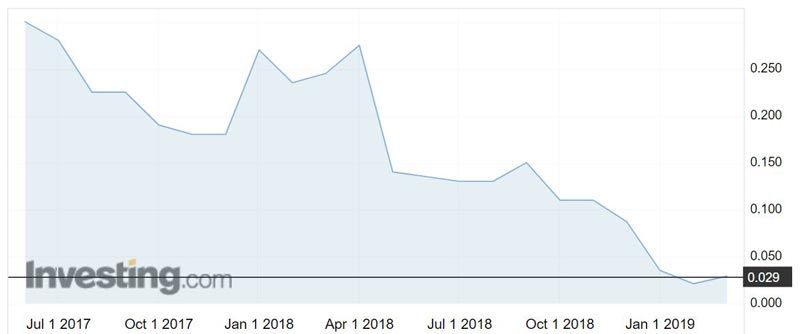Oliver’s new chairman says a few reassuring words and investors pile back in
Food & Agriculture
The newly appointed chairman of Oliver’s Real Food (ASX:OLI) has reassured shareholders that the troubled healthy fast food company may have “lost its way” but “not its promise”.
“It is the view of the incoming board that Oliver’s is still able to achieve its potential as a stable, profitable category leader in its unique space,” said Nick Dower, original franchisor of Video Ezy and the founder and current chairman of the Niche Group.
His words seemed to placate investors, with Oliver’s share price closing up nearly 32 per cent at 2.9c on Monday.
Mr Dower was yesterday appointed to the role of chairman after pretty much Oliver’s entire board and CEO jumped ship earlier in March.
The shock resignations came a day after the founder and previous CEO, Jason Gunn, returned to the board along with his wife, Amanda.
Oliver’s is the owner of those healthy fast food options you find at big servos usually next to a McDonalds or a KFC.
Mr Dower conceded that Oliver’s performance since it listed in 2017 had been “unacceptable” and that like most small companies it had “difficulty in adjusting”.

“With a bloated head office and overhead structure that was not focused on its core business, performance at the cash register has suffered,” he said.
“The company has been internally focused, key frontline people were ignored by management, and the results are evident.”
Oliver’s has issued a string of downgrades — the first a month after it listed, when it told investors it wouldn’t meet its prospectus forecasts.
The most recent half-year results showed a 3.9 per cent increase in revenue but margins narrowed and the loss went from $127,000 to $11.5m, over half of which was from valuation write downs on assets, debts and inventory.
But the new management thinks it has it under control, with Mr Dower telling investors Oliver’s has identified and where possible confirmed it can get down to a weekly cash burn rate of around $100,000.
By Stockhead’s estimates, Oliver’s was burning through closer to $900,000 a week in the second half of 2018, without factoring in the additional write-downs the company incurred.
With Mr Gunn’s return as CEO, his first move was to slash his own salary.
“With the guidance of his fellow board members, his first decision was to reduce the CEO’s salary by two thirds and hence his impact is already being felt,” Mr Dower said.
“There was a significant number of outside consultants and advisors being paid fees and charges with a dubious relationship to outcomes, which the board has now stopped.
“A hopelessly inadequate accounting structure is being replaced by more appropriate system, the application of which is nearly complete.
“This will provide an improved information flow with relevant reporting and more timely information to management.”
Oliver’s is also planning to liquidate several of its assets that are currently underutilised to free up that cash.
Mr Dower said the focus of the board and management was to return the business to the “successful formulae from its pre-IPO stage” and rebuild shareholder value.